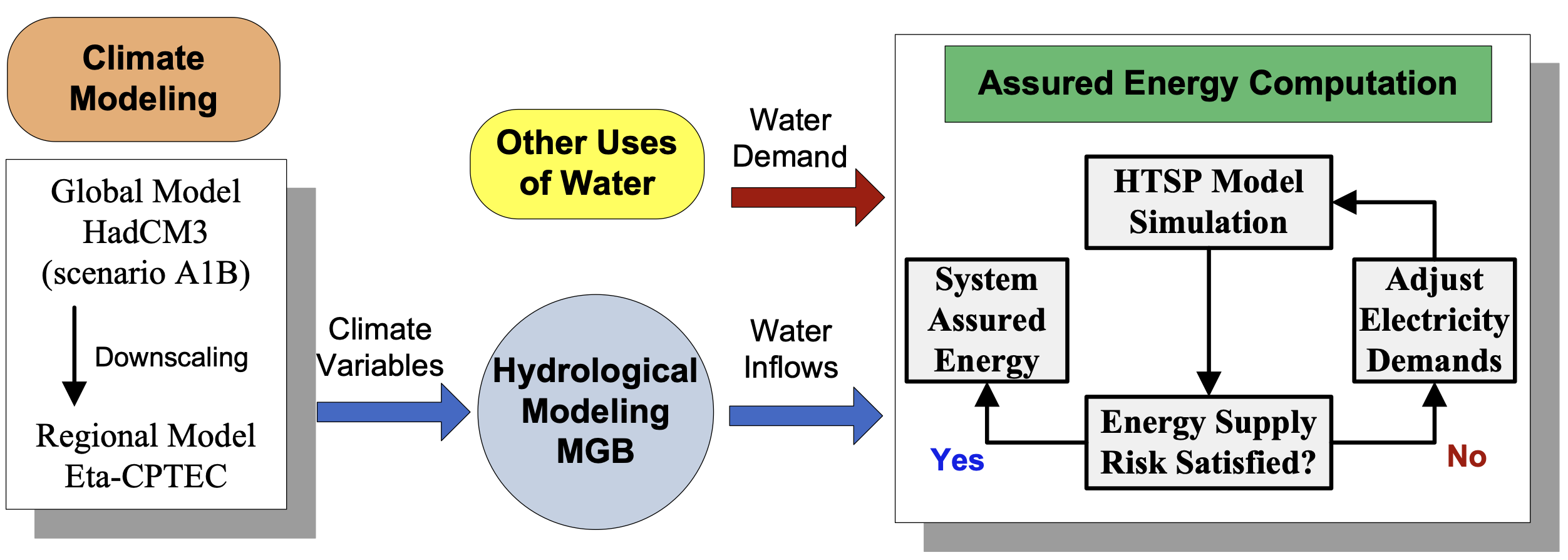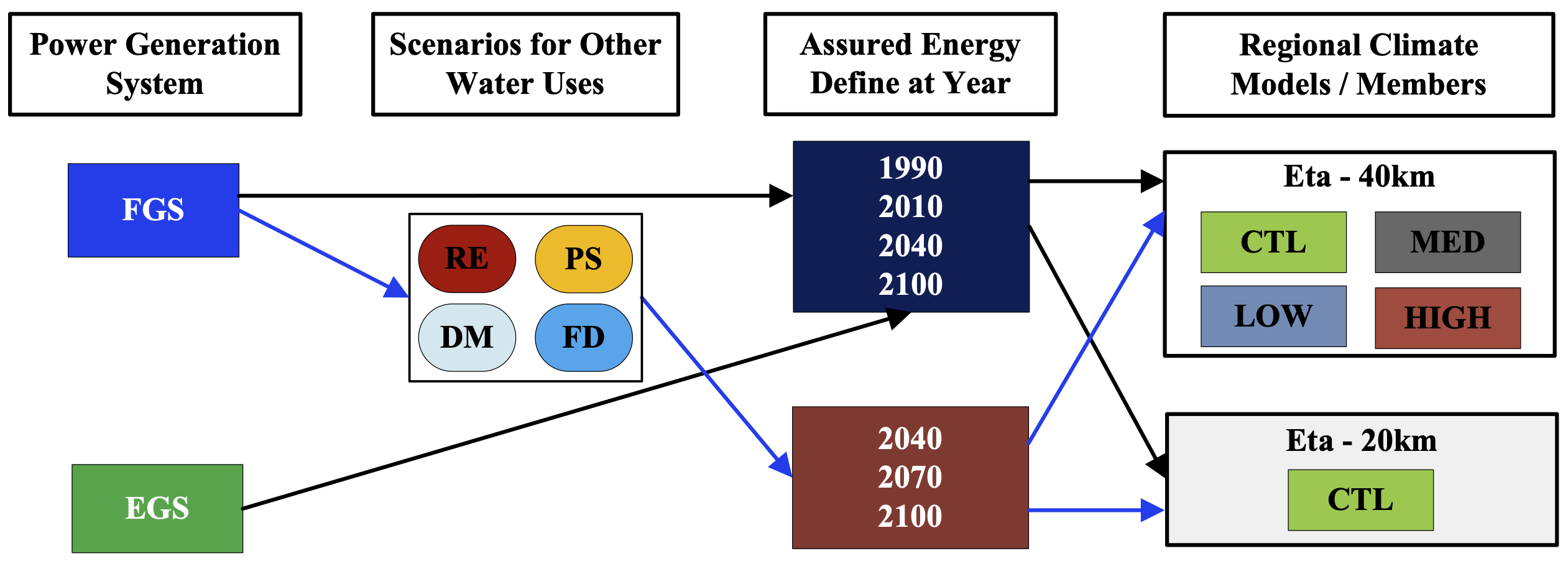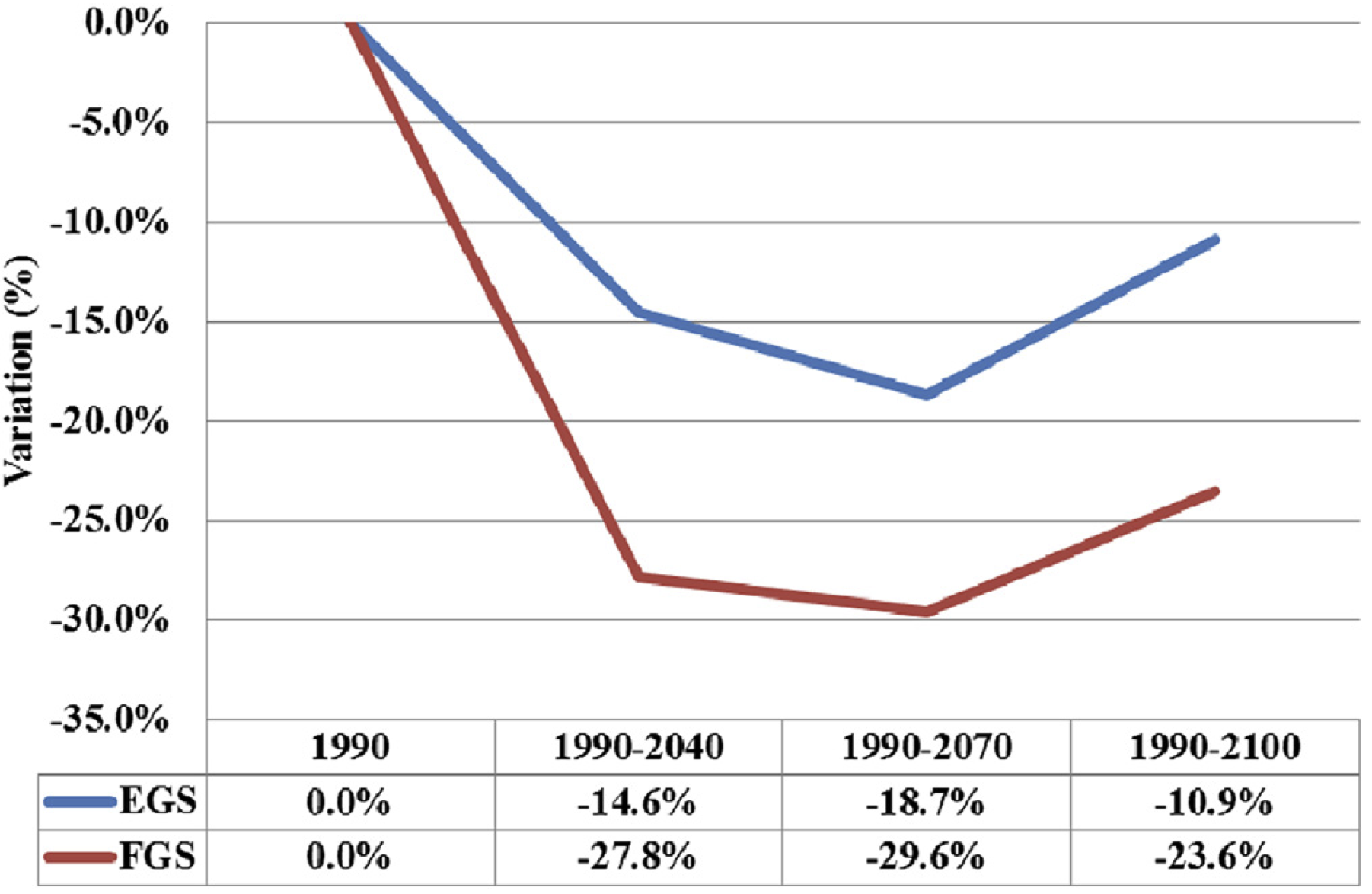Long-term Impacts in the Assured Energy of the Brazilian Power Generation System
Published in Brazilian Electricity Regulation Agency (ANEEL) Strategic R&D Project, 2011-2014 , 2011
Brazil is one of the largest producers of hydroelectricity in the world. However, hydro-generation depends on water inflows that are directly affected by climate variables that consequently affect the electricity production. Therefore, potential modification in this information need to be considered in the operation and planning of a hydro-dominant power system. In this project, we investigate the effects of different climate scenarios in the water inflows produced by the regional Eta model. Normally, studies use an optimization model to make decisions in case of a hydro-thermal scheduling problem and use the assured energy to evaluate the hydro-production. In this analysis, water inflows used in the optimization process consider different trends according to its associated scenario.
Lima, J.W.M. (PI), de Queiroz, A.R. (co-PI), Lima, L.M.M. (co-PI), Potential Future Impacts in the Assured Energy of the Brazilian Power Generation System, Funded by the Brazilian Electricity Regulation Agency ANEEL, 2011-2014

Computation flowchart used to evaluate the system assured energy.

Water inflows future variation for each future period with respect to the base period.

Structure of system assured energy simulation cases.

Existing Generation System (EGS) vs Future Generation System (FGS): Assured energy variation from Eta-40 CTL simulation cases.
